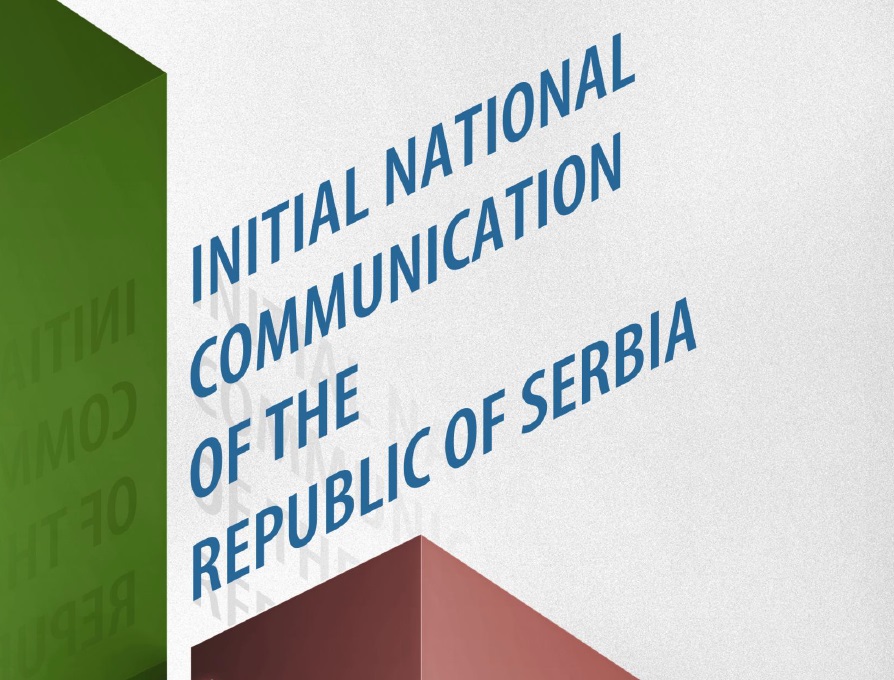Reporting requirements under the UNFCCC
Parties to the United Nations Framework Convention on Climate Change (UNFCCC) must submit national reports on implementation of the Convention to the Conference of the Parties (COP). Serbia published the Initial National Communication in 2010 and is currently preparing the Second National Communication.
The required contents of national communications and the timetable for their submission are different for Annex I and non-Annex I Parties, which is in accordance with the principle of "common but differentiated responsibilities" in the Convention.
Each non-Annex I Party shall submit its initial national communication within three years of the entry into force of the Convention for that Party, or of the availability of financial resources. National communications usually contain information on national circumstances, vulnerability assessment, financial resources and transfer of technology, and education, training and public awareness. Further, the COP decided that non-Annex I Parties, consistent with their capabilities, should submit their first biennial update report by December 2014.
In order to ensure the quality of reporting, non-Annex I Parties receive financial and technical assistance in preparing their national communications, facilitated by the UNFCCC secretariat. In order to improve the process of preparation of national communications the Consultative Group of Experts on National Communications (CGE) was established.
The Global Environment Facility (GEF), as an operating entity of the financial mechanism of the Convention, provides financial support for the preparation of national communications and biennial update reports either through its agencies (UNDP, UNEP and the World Bank) or directly (since 2011).
In addition, the Secretariat is supporting the reporting through organization of workshops, collaboration with bilateral and multilateral support programmes, the dissemination of information through participation in regional workshops and expert group meetings, promoting information exchange, and capacity-building.
Serbia’s requirements
Serbia, as a non-Annex I Party to the UNFCCC, has no commitments on the reductions of GHG emissions but as all other Parties it is expected to provide information on emissions and removals of greenhouse gases and details of the activities it has undertaken to implement the Convention, as well to integrate climate change into the broader development planning process of the country. To achieve the reporting obligations, Serbia should prepare its Biennial Update Reports once every two years and National Communications every four years.
The Initial National Communication (INC) of the Republic of Serbia, as an important national strategic document, was adopted and published in 2010. The report highlighted a number of issues recognizing the energy sector as the main contributor to GHG emissions in Serbia and also likely the sector with the greatest potential for mitigation.
Currently the Government of Serbia, with the help of UNDP and GEF funds, is preparing the Second National Communication and First Biennal Update Report. Read more about the ongoing projects related to the reporting of the Convention.
Since the ratification and application of the UNFCCC and the Kyoto Protocol in Serbia, considerable efforts have been made in establishing legal, institutional and policy frameworks aiming to fulfil the commitments outlined under the Convention and the Protocol. The establishment of a biennial reporting cycle to UNFCCC has important implications for strengthening Serbia’s technical and institutional capacity in the area of climate change. Though Serbia retains a strong commitment to implement the UNFCCC, the country is facing a number of significant constraints – in particular the lack of capacities and a complete operational system for the monitoring, reporting and verification (MRV) of climate change-related activities.


